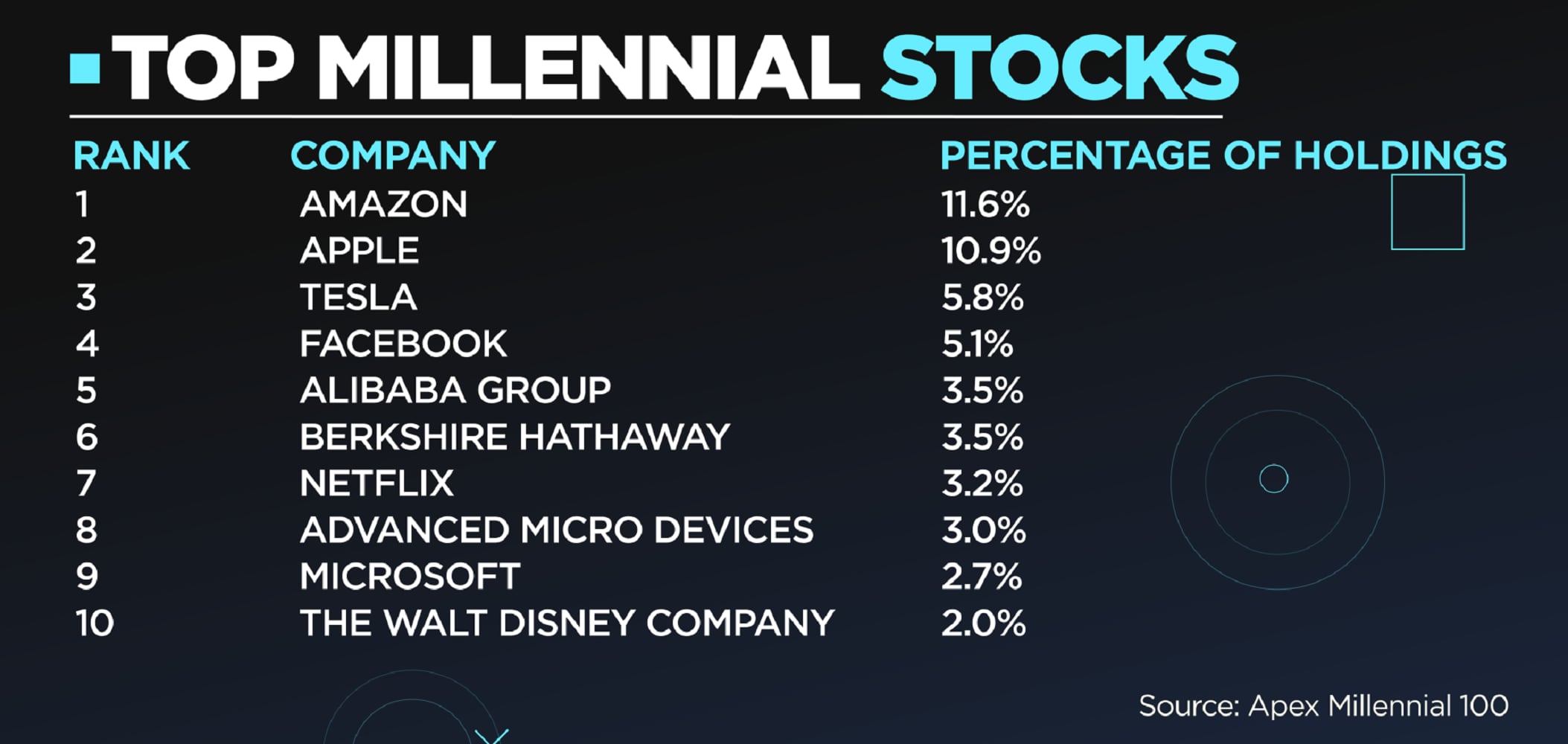Millennials are largely forgoing traditional manufacturing sectors and instead investing in digital technology companies that they're familiar with, according to a new survey.
Apex Clearing, a digital financial services firm, found that the companies millennials invest most heavily in are Amazon ($AMZN), Apple ($AAPL), Tesla ($TSLA), Facebook ($FB), and Alibaba ($BABA).
"These are brands that they believe in, that they use," Bill Capuzzi, Apex's CEO, told Cheddar on Friday, adding that the findings are in accordance with millennials "digital native" milieu.
Other companies in the top 15 included Netflix ($NFLX), Alphabet ($GOOGL), Nvidia ($NVDA), and Microsoft ($MSFT). One notable exception to the trend, however, was Berkshire Hathaway ($BRK.A), which was ranked number six on the list.

Apex surveyed over 650,000 investor accounts owned by millennials with an average age of 30 to determine the top 100 companies. The report — Apex Millennial 100 — also found that millennials are willing to invest in companies that they trust as soon as they go public.
Uber ($UBER), for instance, which went public in May, came in at number 38 on the list and Slack ($WORK), which went public in June, was number 69.
Capuzzi added that his findings support the notion that young people are more eager to invest in companies that align with their values. Millennials want "to invest socially from a social responsibility standpoint," he said, citing the presence of Beyond Meat ($BYND) and Tesla on the list.
"Many millennials conduct their own investment research, using the digital tools at their disposal to solicit input and make decisions," Hannah Shaw Grove, Apex's chief revenue officer, added in a statement.
That has led many millennials to look abroad. The survey found that millennials are embracing China's increasingly dominant economy, investing heavily in major Chinese companies such as Alibaba, TAL Education Group ($TAL), JD.com ($JD), and Ctrip ($CTRP). Canadian cannabis companies were also featured high in the report.












